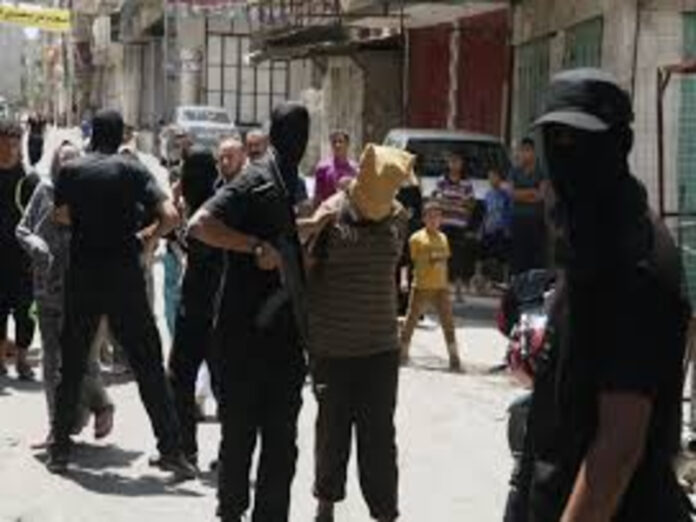Militant Group Cites “Logistical Difficulties” Amid Reports Of Public Executions, Raising Renewed Condemnation
Thursday, October 16, 2025, 3:00 P.M. ET. 3 Minute Read, By Jennifer Hodges: Englebrook Independent News,
GAZA CITY, GZA.- Hamas leaders announced this week that they are unable to recover and return the remains of 19 deceased hostages still believed to be in Gaza, claiming that ongoing devastation and a lack of technical capacity prevent them from doing so. The statement comes even as the militant organization continues a series of public executions of Palestinians it accuses of collaborating with Israel, actions drawing international condemnation and renewed scrutiny of the group’s governing practices.
Israeli officials say Hamas has failed to meet its obligations under the ceasefire deal brokered earlier this month, which required the return of all hostages, living and dead. Hamas contends that large portions of Gaza remain inaccessible due to rubble and unexploded ordnance, preventing recovery of certain remains.
Israel disputes that claim, maintaining that Hamas could recover most of the bodies if it chose to and accusing the group of “deliberate stalling” to gain political leverage.
Public Executions Intensify;
While the hostage issue dominates headlines, Hamas has escalated a campaign of extrajudicial killings targeting Palestinians accused of working with Israel. Footage circulating on social media and verified by international monitors shows masked gunmen executing kneeling detainees in public squares, often after summary accusations of “collaboration.”
At least a dozen Gazans were reported shot dead this week in public executions staged by Hamas militants, as the group vows to “purge collaborators” in the aftermath of recent Israeli withdrawals. Eyewitnesses described the scenes as chaotic and fear-driven, with some victims allegedly targeted for personal or tribal disputes rather than espionage.
Human rights observers have condemned the killings as flagrant violations of international law. Analysts warn that Hamas is using the label of “collaboration” as a political tool to quash dissent, consolidate authority, and instill fear among civilians.
Growing International Backlash;
Global reaction to the twin crises, the unrecovered hostages and public executions, has been swift. Israeli officials have called the situation intolerable, demanding immediate international intervention. The U.S. government and humanitarian groups have likewise expressed outrage, calling on Hamas to end extrajudicial killings and comply fully with ceasefire terms.
Analysts say Hamas’ claim of being “unable” to return hostages’ bodies is undermined by its simultaneous display of logistical coordination in executing alleged collaborators. Critics argue that this contrast exposes a pattern of prioritizing internal control and propaganda over humanitarian obligations.
“The world is seeing the real Hamas, a regime that kills its own people while hiding behind excuses about rubble and logistics,” one Israeli official said. “They have the means to execute civilians in public squares, but not to recover bodies buried a few miles away.”
Analysis: Brutality Over Governance;
The executions and stalled body returns reveal a movement consumed by control rather than governance. For many Gazans, fear of being branded a “traitor” now overshadows daily survival. For Israel and international mediators, Hamas’ brutality undermines already fragile diplomatic progress.
Analysts warn that each unreturned hostage and each execution further isolates Hamas, potentially eroding what remains of its legitimacy both regionally and globally. One Western diplomat said, “Hamas has shown that it governs through fear, not through justice, and fear always runs out.”
Editor’s Note;
This article is based on confirmed and independently verified reports from multiple major international news organizations and monitoring agencies as of October 16, 2025. All facts and figures have been cross-checked for accuracy through publicly available and reliable sources. The tone of this report reflects a factual and critical stance toward Hamas’ documented actions, which include violations of international humanitarian norms and the carrying out of extrajudicial killings.

